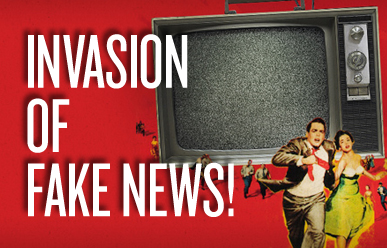Our Attention Economy

Money follows eyeballs. I saw that phrase on a slide in a conference presentation about marketing with social media.
Everyone wants your attention. Your children want your attention. Your spouse wants your attention. You want the attention of your students. Nothing new about that concept and there are plenty of ways to get someone's attention.
But it is a more recent way of thinking about attention to consider it as economics. I was listening to the audiobook of A Beautiful Mind recently. It's a book (and a good but highly romanticized film) about the mathematician John Nash. Nash received the Nobel Prize in Economics for his work on game theory as it was applied to economics. His ideas, presented in the 1950s, certainly must have seemed novel at the time, but 40 years later they seemed logical. That will probably be true of attention economics. There are already a good number of people writing about it.
Attention economics is an approach to the management of information that treats human attention as a scarce commodity. With attention as a commodity, you can apply economic theory to solve various information management problems.
Attention is a scarce commodity or resource because a person has only so much of it.
Not only in economics but in education and other areas that focused mental engagement that makes us attend to a particular item, leads to our decision on whether to act or not. Do we buy the item advertised? Do we do what mommy said to do?
We are deep into the Information Age and content is so abundant and immediately available, that attention has become a limiting factor. There are so many channels and shows on the many versions of "television" competing for our attention that you may just decide not to watch at all. Or you may to decide to "cut the cord" and disconnect from many of them to make the choices fewer.
Designers know that if it takes the user too long to locate something, you will lose their attention. On web pages, that attention lasts anywhere from a few seconds to less than a second. If they can't find what they were looking for, they will find it through another source.
The goal then becomes to design methods (filters, demographics, cookies, user testing etc.) to make the first content a viewer sees relevant. Google and Facebook want you to see ads that are relevant to YOU. That online vendor wants the products on that first page to be things you are most interested in buying. Everything - and everyone - wants to be appealing to everyone.
In attention-based advertising, we measure the number of "eyeballs" by which content is seen.
"You can't please everyone." Really? Why not?
In the history section of the entry on "Attention Economy" on Wikipedia, it lists Herbert A. Simon as possibly being the first person to articulate the concept of attention economics. Simon wrote: "...in an information-rich world, the wealth of information means a dearth of something else: a scarcity of whatever it is that information consumes. What information consumes is rather obvious: it consumes the attention of its recipients. Hence a wealth of information creates a poverty of attention and a need to allocate that attention efficiently among the overabundance of information sources that might consume it" (Simon 1971, pp. 40–41).
Simon was talking about the idea of information overload as an economic concept and that has led to business strategists such as Thomas H. Davenport to use the term "attention economy" (Davenport & Beck 2001).
Where will this lead? On the outer edges are those who speculate that "attention transactions" will replace financial transactions as the focus of our economic system (Goldhaber 1997, Franck 1999).
Designers of websites, software, apps and any user interface already take into account attention, but information systems researchers have also adopted the idea. Will we see mechanism designs which build on the idea of creating property rights in attention?

 Jane Hart created the Centre for Learning and Performance Technologies (
Jane Hart created the Centre for Learning and Performance Technologies ( I'm working on a presentation titled "Social Media Ethics and Law" to be given at the
I'm working on a presentation titled "Social Media Ethics and Law" to be given at the 